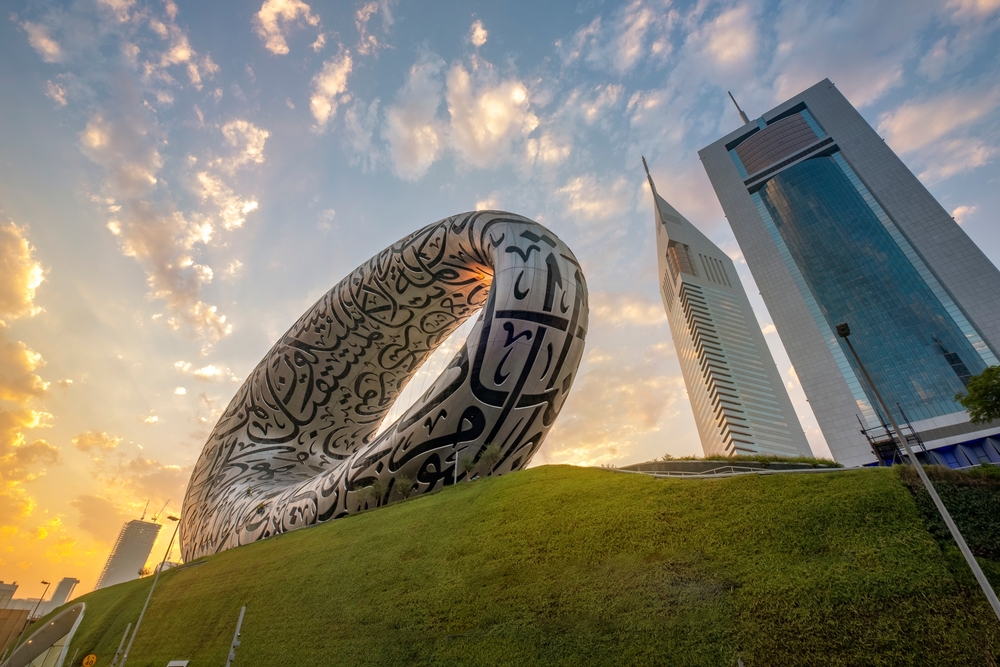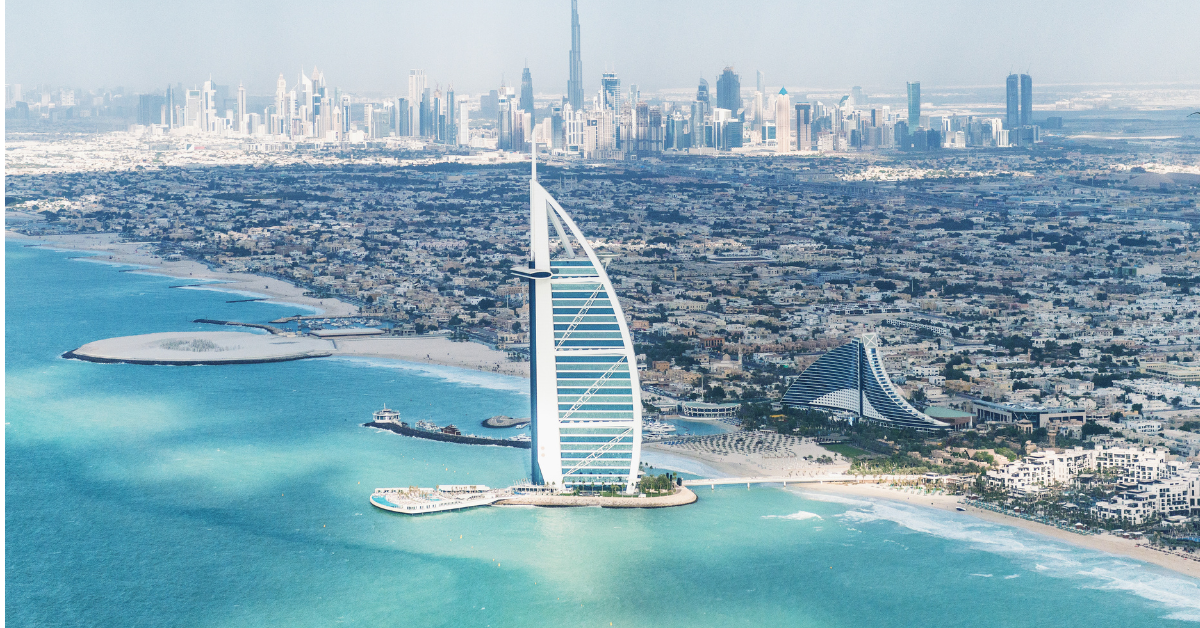The job market in the Middle East is changing rapidly due to a combination of technological progress, economic diversification and sustainability goals. As countries in the region — especially those in the Gulf Cooperation Council, such as Saudi Arabia, the UAE and Qatar — continue to invest in infrastructure and technology, recruiters are increasingly looking for professionals with the skills to meet these growing demands.

Job opportunities are increasing in the Middle East as a result of the increasing focus on industries such as cybersecurity, artificial intelligence, healthcare and renewable energy. With a strong focus on high-tech and sustainable companies, the job market in the Middle East is becoming increasingly competitive.
According to hiring managers, candidates must have technical knowledge and soft qualities such as leadership, communication and flexibility. These abilities will be necessary to negotiate the changing nature of the workforce. This article will cover job market trends in the Middle East, the hiring managers’ expectations in the Gulf Cooperation Council countries, and the strategies that job seekers must follow to succeed in the coming years.
- Job market in the Middle East

Rapid improvements in technology and changing economic goals are causing a significant transformation in the business environment in the Middle East. Thanks to government-supported programs aimed at economic diversification, potential is growing across a wide range of industries in the Gulf Cooperation Council countries, including Saudi Arabia, the UAE and Qatar. The region now enjoys one of the world's most dynamic job markets due to this diversity, which also accelerates the expansion of non-oil industries such as healthcare, information technology and renewable energy.
- Job market trends in the Middle East
The Middle East, especially the Gulf Cooperation Council countries, will witness a tremendous expansion in areas such as cybersecurity, artificial intelligence, renewable energy and healthcare over the next 10 years. This change is in line with the objectives of national development plans that place a high priority on sustainability and technological integration, such as the UAE National Innovation Strategy and Saudi Arabia's Vision 2030. A competitive environment for job seekers in the Middle East has been created through increased employment caused by the increasing need for qualified workers in various fields.

Moreover, traditional sectors in the UAE and Qatar continue to undergo transformation thanks to the introduction of technology, with a new wave of job creation accelerating thanks to the development of artificial intelligence and automation in sectors such as finance and logistics, rather than the increasing use of data science and blockchain. Rapid changes are also taking place in industries such as healthcare and finance, as governments implement smart city projects that require highly qualified personnel to oversee complex technological infrastructures.
- Hiring Managers’ Expectations
Employers in the Middle East are increasingly seeking to hire candidates with high technological skills, and it is clear that there is a high demand for professionals who are able to lead digital transformation across a range of industries as the region's economic focus shifts towards innovation and technical progress. For example, since companies want to integrate artificial intelligence and machine learning into their operations, there is a particularly strong need for workers with these skills in the UAE.
As Saudi Arabia improves its digital infrastructure, the demand for cybersecurity specialists increases. The UAE's emergence as a digital innovation hub also reinforces the need for software engineers, data analysts and IT consultants. As the Gulf Cooperation Council continues expands and diversify, the demand for experts in artificial intelligence, cybersecurity and renewable energy will continue, making the job market in the Middle East more competitive and dynamic, especially in Saudi Arabia and the UAE.

- Leadership of Gulf Cooperation Council countries
With a focus on sectors such as clean energy, artificial intelligence and healthcare, the Gulf Cooperation Council countries – especially Saudi Arabia, the UAE and Qatar – are making great strides in diversifying their economies and attracting international talent. For example, the UAE has made significant investments in renewable energy projects such as the Mohammed bin Rashid Al Maktoum Solar Park.
Saudi Arabia is working to reduce its dependence on oil and increase its prospects in non-oil industries such as technology, tourism and entertainment as part of its Vision 2030. In order to attract foreign talent for technology-based jobs such as data analysis, artificial intelligence and software development, the government offers incentives.
With these expanding trends, professionals are well positioned to thrive in the dynamic job market in the Middle East, especially in the Gulf Cooperation Council countries where the demand for these talents continues to rise. These changes reflect future trends in the job market and the hiring managers’ expectations in the region.
- The role of international talent in the job market in the Middle East
The increasing reliance on foreign talent for highly specialized jobs as job opportunities in the Gulf Cooperation Council region continue to grow, countries such as Saudi Arabia, Qatar and the UAE are attracting professionals from around the world to capitalize on the growing demand for skilled labor by offering attractive compensation packages, increasing the diversity of the workforce and making the job market in the Middle East more competitive globally.
International employment is essential to the success of economic diversification initiatives in the UAE, where the country's population is largely made up of expatriates. The need for experts in fields such as artificial intelligence, cybersecurity and software engineering is expected to continue to grow as the country becomes a hub for startups and technological innovations, in line with job market trends in the Middle East. Thus, the hiring managers’ expectations are increasingly focused on attracting elite talent to these expanding industries.
- Growing Opportunities for Renewable Energy and Sustainability in the Gulf Cooperation Council Region: A New Wave of Job Demand

Professionals in sustainable fields such as green technology and renewable energy are increasingly in demand as the Gulf states modernize and diversify their economies, with growth in industries such as solar, wind and energy-saving technology driven by Saudi Arabia's Vision 2030 and sustainable energy projects in the UAE. Experts in environmental science, project management and sustainable energy are finding new business prospects as a result of this change, which aims to reduce carbon emissions and promote sustainability. In line with international environmental goals, these developments are expected to have a significant impact on job market trends in the Gulf Cooperation Council region.
To sum up, both technical improvements and the focus on sustainability are driving the rapid development of the business sector in the Gulf region, and the region provides a wealth of opportunities for skilled people with the growing need for experts in areas such as cybersecurity, artificial intelligence and renewable energy. job market trends in the Middle East show a move towards innovation, generating exciting and competitive job opportunities across the Gulf Cooperation Council countries.








 2025-07-26
2025-07-26
 2025-06-02
2025-06-02
 2025-05-22
2025-05-22
 2025-05-16
2025-05-16
 2025-05-05
2025-05-05